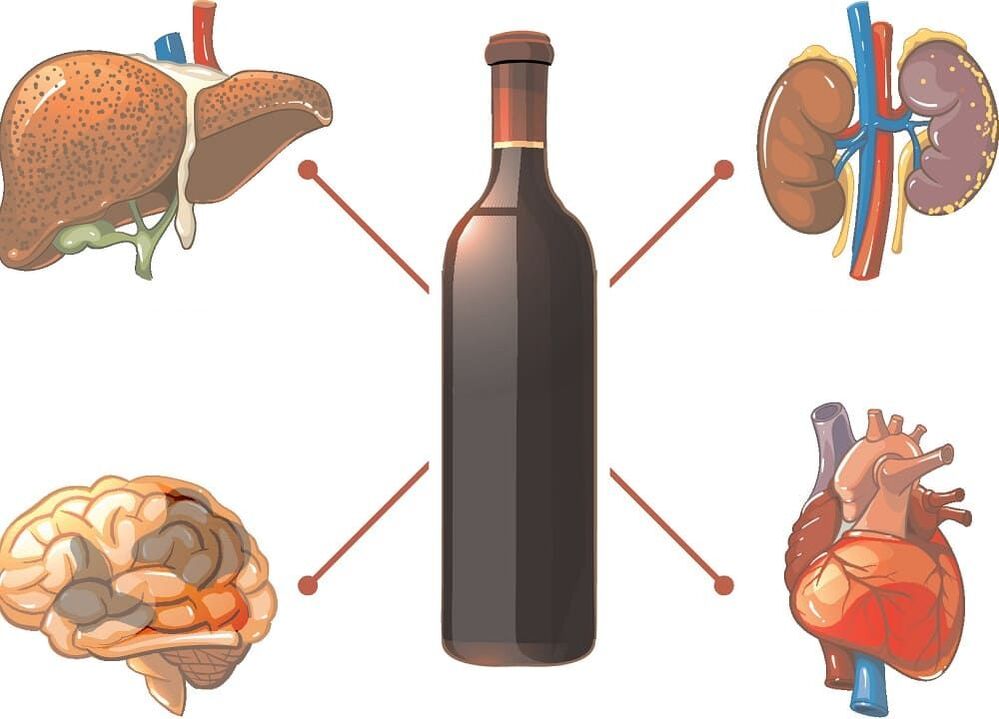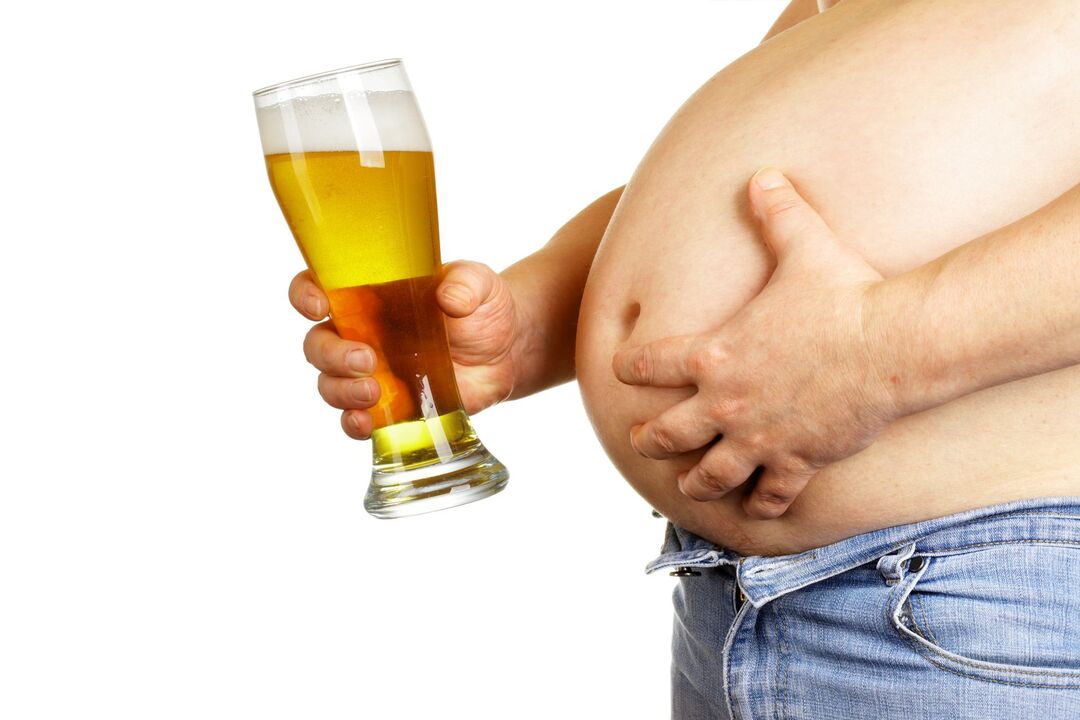Why is drinking alcohol harmful to health?
Alcohol damages cells and body
Alcohol worsens mental and physical health
Alcohol can lead to addiction

What effects does alcohol have on the body?
Alcohol has toxic effects on the nervous system, manifested by impaired motor coordination, irritability, emotional instability, memory loss, and decreased concentration. Additionally, it has negative effects on the cardiovascular system, causing increased blood pressure, cardiac arrhythmias, and increased blood cholesterol levels.
- Alcohol has toxic effects on the nervous, cardiovascular and other body systems;
- Alcohol damages the digestive system and can lead to various illnesses;
- Drinking alcohol can lead to addiction and serious illness.
Alcohol addiction: what is it and how does it happen?
What is alcohol addiction?
How does alcohol addiction occur?
Signs of Alcohol Addiction
- Unable to control alcohol consumption
- Have a persistent desire to drink
- Giving up normal activities to drink alcohol
- Spending a lot of time with alcohol and alcoholics
- Lack of interest in other types of entertainment and fun
- Alcohol interferes with sleeping, eating, and other important functions
- Damaged relationships with loved ones
consequences for alcoholics
- liver– Long-term alcoholism can lead to cirrhosis of the liver, which can lead to death.
- heart and blood vessels– Binge drinking increases the risk of various cardiovascular diseases, such as heart disease and high blood pressure.
- stomach and intestines– Alcohol irritates mucous membranes, leading to gastric ulcers and various digestive disorders.
- nervous system– Alcohol abuse can lead to neurological disorders such as paralysis and impaired motor coordination.
Which alcoholics survive into old age?

Statistics show that alcoholics who begin treatment for their addiction at a young age have a higher chance of surviving into old age. Additionally, alcoholics who have no health problems and know how to restrain themselves from drinking also have a higher chance.
What affects the life expectancy of alcoholics?
long-term drinking
Drinking quantity
presence of concomitant diseases

gender and age
Symptoms of the final stages of alcoholism

One of the main symptoms of the final stages of alcoholism is a lack of understanding of the world around you and a violation of your mental state. Sufferers may experience low self-esteem, intense reactions to stopping drinking, and mimicry of external feelings.
- Symptoms of the final stages of alcoholism:
- Loss of control over drinking;
- serious health and behavioral problems;
- lack of understanding of the world around them and impaired mental state;
- self-abasement;
- Persistent craving for alcohol;
- Diseases of the internal organs, nervous system, and digestive system.
Ways to Fight Alcohol Addiction
medical treatement
psychotherapy
rehabilitation plan
Self-service
Excreted from the body
How to Overcome Alcoholism: Tips and Tricks
- Determine the cause of alcoholism.The first step in overcoming alcoholism is to recognize that you suffer from alcoholism and find out what causes it. This could be stress, depression, conflict in personal life or work, etc.
- Plan your daily life.A strict daily routine will help you avoid the temptation to drink alcohol. It’s important to focus on healthy sleep, balanced nutrition, and physical activity.
- Search activity.On the one hand, alcoholism brings euphoria and pleasure, but on the other hand, it can also damage health and relationships. Therefore, it is important to find an activity that can replace alcohol. This could be a passion for sports, reading, learning a new language, or a musical instrument.
- Find support.It's difficult to overcome a drinking problem on your own, so it's important to seek support from friends, family or professionals. Do not hesitate to seek help from a psychologist, anesthesiologist, or support group.
- Make an appointment with your doctor.While there are some cases where you can go without medication, in most cases the right specialist will help you deal with your alcohol abuse problem more effectively and quickly. Don't be embarrassed to ask your doctor for help.
Questions and Answers:
How does long-term alcohol consumption affect life expectancy?
Do alcoholics live longer than non-drinkers?
Which type of alcohol is less harmful to health?
Is there a certain period within which you can drink alcohol without damaging your health?
Are there ways to reduce the health effects of alcohol?
Do genes influence the life expectancy of alcoholics?
How to stay healthy when drinking alcohol
Practice moderation
































